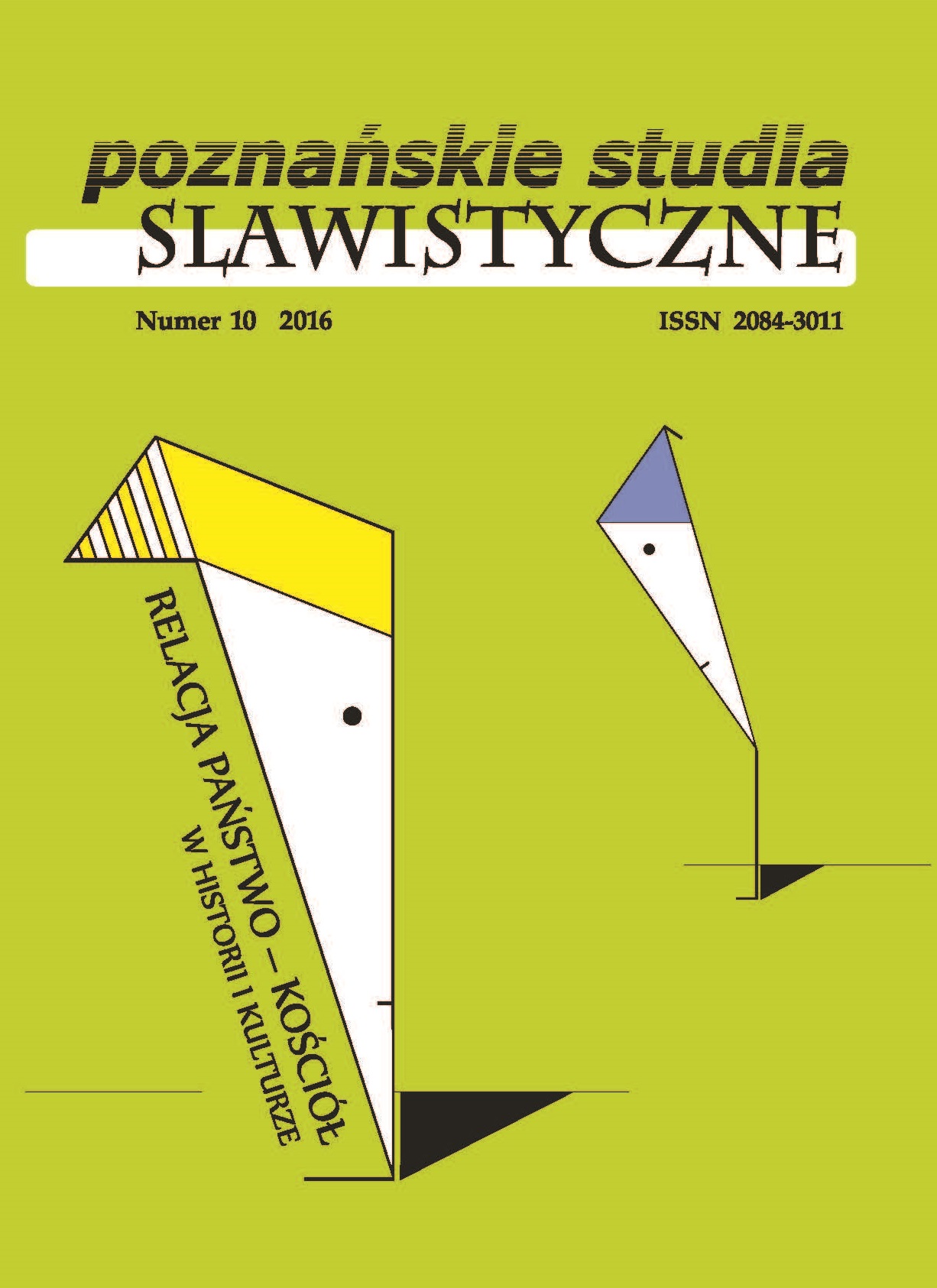Tradycje religijne w czeskim dyskursie tożsamościowym okresu międzywojennego
Religious Traditions of the Czech Identity Discourse from the Interwar Period
Author(s): Jan PešinaSubject(s): Christian Theology and Religion, History, Theology and Religion
Published by: Uniwersytet Adama Mickiewicza
Keywords: religious traditions; identity discourse; Czechoslovakia; Saint Wenceslas; Jan Hus
Summary/Abstract: The main purpose of the article is to find the answer, how two different religious traditions (reformative and catholic) influenced the process of building of historical consciousness of secularCzech society in the interwar period. During the first years of the independent Czechoslovakiaexistence, a typical phenomenon was a domination of the hussite historical reminiscences, whichculminated in the year 1925, during the national celebration of the 510 anniversary of Jan Hus’death. In the same time, it was possible to notice voices, which were questioning an asymmetricconstruction of historical consciousness and emphasizing necessity of ‘extracting’ also from otherhistorical traditions. The opportunity to merge two main Czech spiritual traditions occured in theyear 1929, when not only Catholic Church, but also Czechoslovak state organised Saint WenceslasMillennium celebration. ‘Over-confession’ and ‘over-ethnical’ meaning of state parts of celebration should be considered as the successful change of unequal paradigm of historical consciousness, as well as the beginning of gradual process changing Czech society from the communitydefined in the ethnical-language way into civic society.
Journal: Poznańskie Studia Slawistyczne
- Issue Year: 2016
- Issue No: 10
- Page Range: 243-255
- Page Count: 13
- Language: Polish

